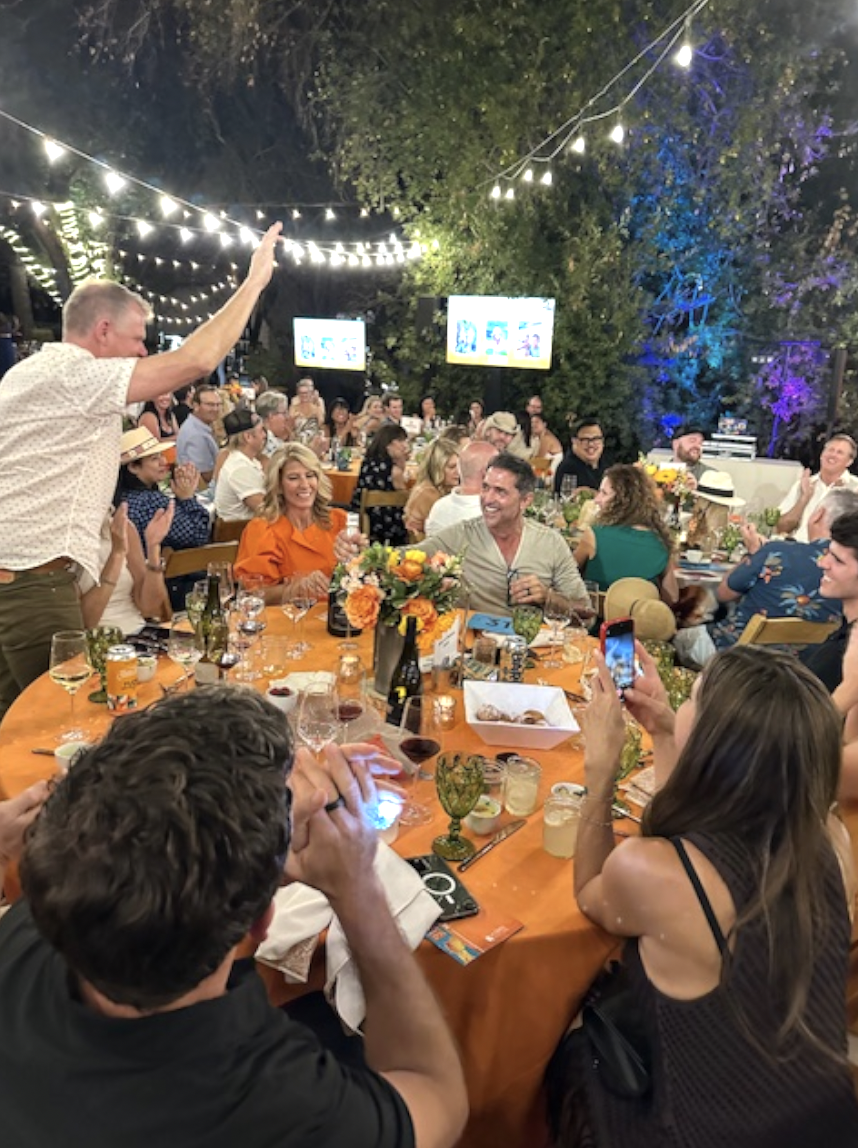A mass of mourners gathers in front of the Supreme Court building, each clutching a candle or handmade sign. Some place flowers, candles and letters along the steps, crouching down to give thanks and say goodbye. The compelling words of chosen speakers, readings of “Mourner’s Kaddish” and melodies like “Amazing Grace” float in the air. There is not a dry eye in sight as Americans come to grieve Supreme Court Justice Ruth Bader Ginsburg, who died from complications of pancreatic cancer on Sept. 18.
Ginsburg was regarded as a dauntless fighter throughout her career and personal life. Prior to becoming an attorney, she began breaking social norms in 1954 by graduating first in both of her classes at Columbia and Cornell, and was one of nine women in her class at Harvard Law School. Elinor Reiner is a retired judge who worked in New York shortly after Ginsburg attended college.
“I actually met her once. I happened to go to an art show in Newport, Rhode Island and she came. There were not that many people there, so we walked over and introduced ourselves. She was very quiet and unassuming, but so brilliant and a hard worker,” Reiner said.
Reiner also experienced the difficulties of receiving an education as a woman especially during the 1950-60s, which leads to her admiration of Ginsburg’s educational background.
“What is amazing to me is [that] she got where she got to as a woman in those days. It was remarkable enough to actually get to Cornell, when women didn’t usually go to college,” Reiner said.
After schooling, Ginsburg continued to push boundaries in becoming a professor at Rutgers University and then Columbia University, where she became its law school’s first female tenured professor. Her educational and teaching experience already brought her an amplitude of challenges, but she continued to face them in her personal life as well. Her husband, Martin Ginsburg, whom she met at Cornell, was diagnosed with testicular cancer in 1999, making him severely ill and unable to attend law school. On top of her own school work, she began to take notes for her husband in his classes while raising their young child. AP U.S. History teacher Lindsey Kornfeld esteems Ginsburg’s character and determination in all aspects of her life.
“I admire her ability to elicit change in her personal life. And in her time on the court, she made lasting changes that improved many aspects of society,” Kornfeld said.

In 1971, she co-founded the ACLU Women’s Rights Project, which fought against the normalization of a male-dominated workplace in upwards of 300 gender-based discrimination cases nationwide. Her fight for gender equality was recognized by Jimmy Carter, who appointed Ginsburg to the U.S. Court of Appeals for the District of Columbia in 1980. Here, she continued this strive toward broader women’s rights in cases she appealed. Derek DeNardo, a U.S Government teacher, is among many to recognize her early achievements.
“Some of her greatest accomplishments were even before she got on the court. She had her strategy for gaining women equality under the law, she pursued different cases relentlessly and she picked the cases that would build her argument over time,” DeNardo said.
After her time working on the Court of Appeals and years of dedication to her family, her career and the fight against gender discrimination, Ginsburg was finally awarded in 1993. She was appointed by President Bill Clinton as the second woman and first Jewish justice on the Supreme Court.
In her time on the bench, she was part of a collective force in groundbreaking decisions that improved workplace, education, healthcare and property rights for women. Kornfeld recognizes the determination that she carried in each endeavor.
“At the very core, she proved that women in America are equal [to men] and she fought for that during her time on the Supreme Court. She used determination and grit to make a more lasting impact and I think that’s proof [for women today] to just keep working,” Kornfeld said.
The justice also fought for the rights of the LBGTQ+ community, people of color, disabled people, those with mental illnesses and immigrants. She recognized the laws held in place regarding these minorities, which did not advocate for their rights or representation in society. So she fought the laws in her dissents, a series of opinionated documents urging for change, while on the court. DeNardo holds that these dissents originated from Ginsburg’s unique and often ostracizing position on the bench.
“She found herself, [during] much of her time on the court, a minority. So when the conservative majority would rule on a case and she didn’t agree, she would write these incredibly powerful dissents,” DeNardo said.
These fiery texts helped spark change to pass new laws improving the lives of many Americans, including those of succeeding generations. Many women in Generation Z seek to carry this torch in being outspoken about the continuing issue of gender equality, like junior Haley Rothbart, co-founder of the student feminist club LikeAGirl.
“[Ginsburg] wants us to turn in a new direction that embraces new ideas of the future and the present [regarding] equality and being who you want to be, despite what our past has set,” Rothbart said.
Rothbart also looks up to Ginsburg, not just as a path maker for the future, but for her perseverance.
“I admire the fact that she could motivate herself and inspire other people to keep pushing no matter what society says. It’s hard to be one of the first people to do something, because there’s so many people that are telling you that you can’t. But despite all of her challenges, she just pushed until she reached her goals and she never stopped until the day she died,” Rothbart said.
Ginsburg leaves a remarkable legacy behind for the next generation and all that admire her. Her life will be remembered, not just as a Supreme Court justice, but a feminist icon and a symbol for change. Although she is no longer with us, her messages carry on.
“Real change, enduring change, happens one step at a time,” Ginsburg said.













